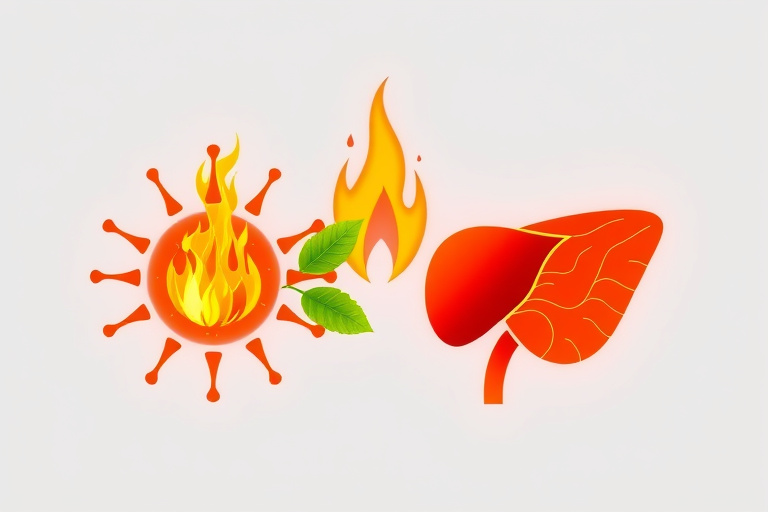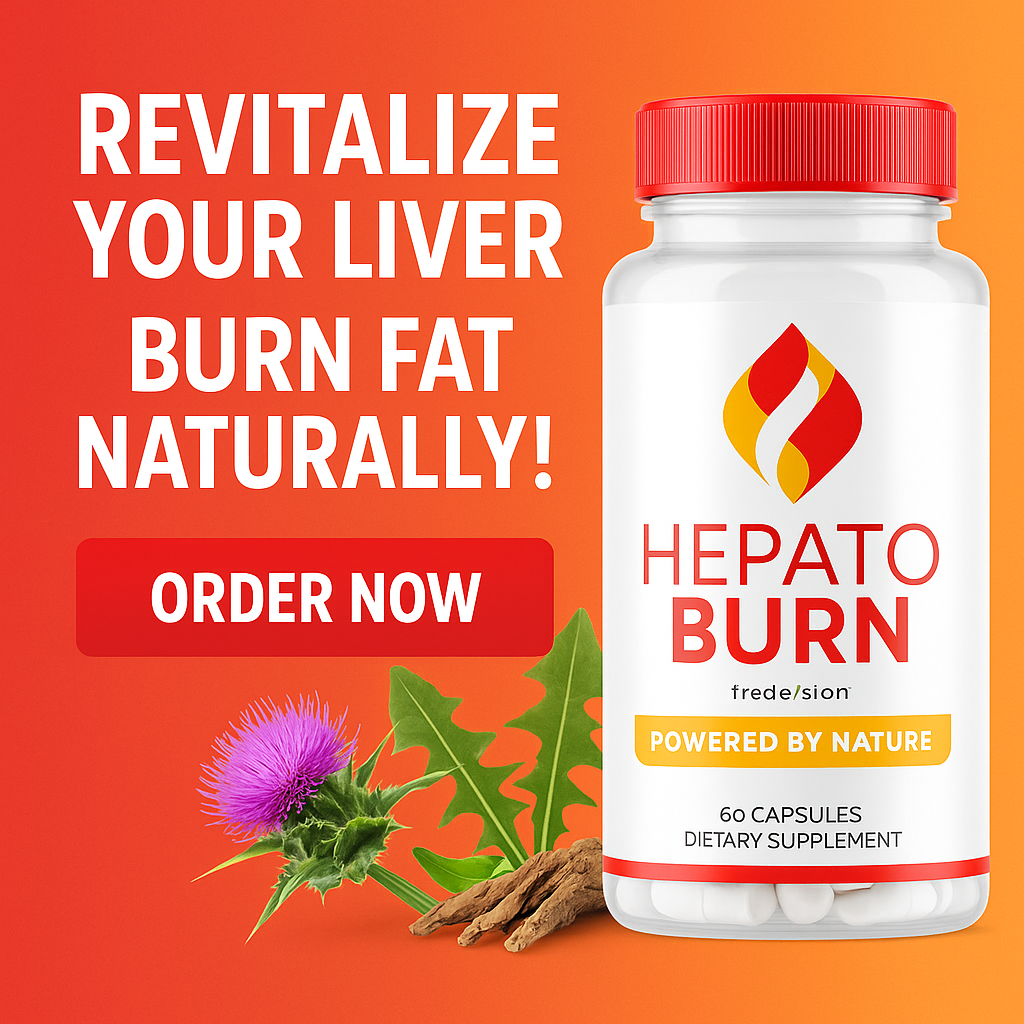Introduction to Fat Oxidation and Liver Health
Fat oxidation is a fundamental metabolic process where the body breaks down stored fats to produce energy. This process occurs primarily within the mitochondria, the cell’s energy powerhouses, and is essential for maintaining a healthy weight and metabolic balance. Efficient fat oxidation not only supports weight management but also plays a crucial role in overall health, especially liver function.
The liver is central to fat metabolism, acting as a processing hub for nutrients and fats. When liver health is compromised, such as in cases of fatty liver disease (NAFLD), the body’s ability to oxidize fats effectively diminishes. This can lead to increased fat accumulation in the liver and other metabolic disturbances. Therefore, supporting liver health is vital for optimizing fat metabolism and achieving sustainable weight management.
Supplements like Hepatoburn aim to support these processes by enhancing fat oxidation and promoting liver health. These products often contain natural ingredients designed to boost metabolic pathways safely and effectively.
How Hepatoburn Enhances Fat Oxidation in the Body
Hepatoburn contains a blend of natural ingredients known for their roles in supporting fat metabolism. Key components often include plant extracts, vitamins, and compounds that stimulate mitochondrial activity and enzymatic functions involved in lipid breakdown.
One of the primary mechanisms by which Hepatoburn may accelerate fat metabolism is through activation of mitochondrial function. By improving mitochondrial efficiency, the supplement helps the body burn fats more effectively for energy. Additionally, certain ingredients stimulate enzymes responsible for lipolysis—the process of breaking down triglycerides into usable fatty acids.
This enhanced fat oxidation can lead to a reduction in liver fat deposits and contribute to overall weight loss. As the liver becomes more efficient at processing fats, individuals may experience improvements in metabolic health and a decrease in fatty liver symptoms.
Understanding the Scientific Basis of Fat Oxidation Uses in Liver Supplements
Scientific research supports the idea that increasing fat oxidation is a viable pathway for weight management and liver health improvement. Studies indicate that boosting fat oxidation can help reduce liver fat content, especially in conditions like NAFLD, by promoting the breakdown and removal of excess fats from the liver tissue.
Enhancing fat oxidation not only aids in weight loss but also improves insulin sensitivity and reduces inflammation, which are critical factors in managing fatty liver disease. Compared to other fat-burning supplements, Hepatoburn’s approach emphasizes supporting the body’s natural metabolic pathways with natural ingredients, making it a potentially safer option for long-term use.
Evaluating the Effectiveness of Hepatoburn for Promoting Fat Loss
Current studies and user reports suggest that Hepatoburn can effectively increase fat oxidation, leading to reductions in liver fat levels and improvements in metabolic markers. While individual results vary, scientific data indicates that consistent use over several weeks can produce noticeable benefits.
Improvements in liver fat levels are typically assessed through imaging or blood tests measuring liver enzymes and lipid profiles. Many users report feeling more energetic and experiencing gradual weight loss, aligning with scientific findings on fat oxidation mechanisms in weight loss.
Based on available evidence, most individuals may begin to see results within 4 to 8 weeks of regular supplementation, provided they also maintain a healthy diet and lifestyle.
Safety Considerations When Boosting Fat Oxidation with Supplements
While increasing fat metabolism can be beneficial, it is essential to be aware of potential side effects. Some individuals may experience gastrointestinal discomfort, allergic reactions, or changes in liver enzyme levels if supplements are not used appropriately.
Ensuring liver safety involves choosing high-quality products, adhering to recommended dosages, and monitoring liver function during supplementation. Consulting healthcare providers before starting any new supplement is crucial, especially for those with existing liver conditions or other health concerns.
Natural ingredients for fat oxidation are generally safe when used responsibly, but individual responses can vary. Professional guidance helps mitigate risks and ensures that supplement use aligns with overall health goals.
Supporting Liver Health While Enhancing Fat Oxidation
To maximize the benefits of Hepatoburn and support liver health, consider adopting complementary dietary and lifestyle habits. A balanced diet rich in vegetables, lean proteins, and healthy fats provides essential nutrients that aid liver function.
Regular physical activity enhances overall metabolism and promotes fat oxidation, while adequate hydration helps flush toxins and supports liver detoxification processes. Monitoring liver function through periodic tests can help track progress and ensure safety during supplementation.
Combining these strategies with supplement use creates a holistic approach to boosting liver fat burn safely and effectively.
Final Thoughts: Is Hepatoburn a Safe and Effective Option for Fat Oxidation?
Based on current scientific evidence and the natural composition of its ingredients, Hepatoburn appears to be a safe and potentially effective option for those looking to enhance fat oxidation and improve liver health. It offers a targeted approach to support the body’s natural fat-burning mechanisms while prioritizing safety.
However, realistic expectations are important. While supplements can aid in fat loss and liver health, they should be part of a comprehensive lifestyle plan that includes proper diet, exercise, and medical oversight. The key takeaway is that boosting fat oxidation can be achieved safely with the right strategies and support, making Hepatoburn a viable option for many individuals seeking to improve their metabolic health.




